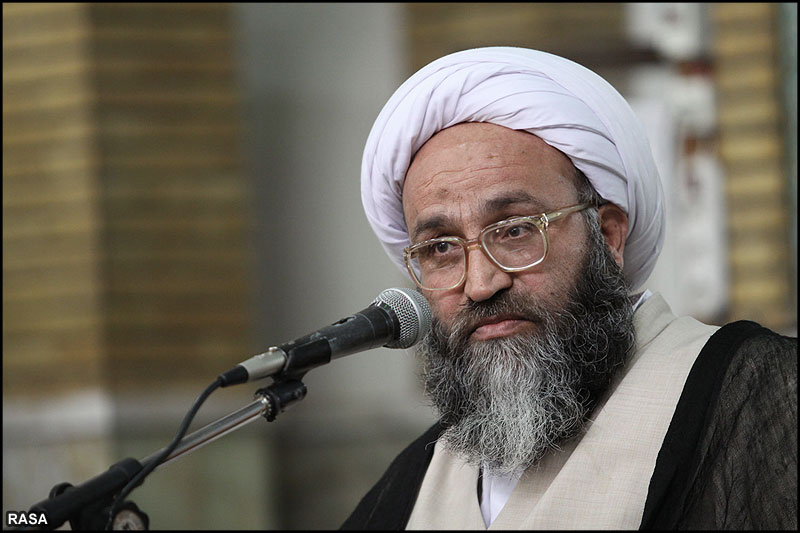
RNA – In an interview with Rasa News Agency, Ayatollah Mohsen Heydari referred to the decision of a Bahraini court to try Ayatollah Isa Qasim as based on “false pretexts” and analyzed the objectives of the Al Khalifah’s pressure on the Shi’as of Bahrain.
Ayatollah Qasim will reportedly go on trial in August for alleged “money laundering” amid simmering tensions after the Manama regime decided to revoke his nationality.
The member of the Assembly of Experts added that the Al Khalifah regime seeks to strengthen its rule and realizes that Ayatollah Qasim, the spiritual leader of the country’s majority Shi’a population, hinders their rule and existence. For this reason, they impose any hardship possible on the country’s Shi’as and their leader.
He said the Al Khalifah regime’s rule is illegal and inhumane and its actions do not match any of the rules of Islamic law or international law and are not acceptable from any point of view.
Ayatollah Heydari said that the lack of a firm response by scholars of the Islamic world is due to the arrogance of the Al Khalifah and added that if all or most of the Islamic scholars take an appropriate position toward evil, oppression and violence, certainly corrupt rulers would not be able to continue their oppression.
The Friday prayer leader of Ahvaz said that the scholars and Muslims must be made aware of the situation in Bahrain and there must be communication between the scholars of the Islamic world, both inside Iran and abroad in order to turn the public opinion of the world against the tyranny and oppression of the Al Khalifah regime with a united voice.
His Eminence pointed to the role of diplomacy in regard to the solving the issue of Ayatollah Qasim and said that the Iranian Ministry of Foreign Affairs has its own specific leverage and mechanisms and if someone wants to use this leverage, they can be very effective because they have contact with the Muslim world.
“In this regard, the relationship with international organizations can indirectly incite world public opinion against this oppression,” he said.
111/112